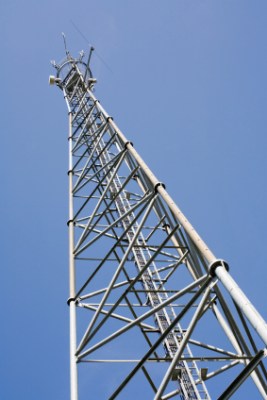The rules for the U.K.’s forthcoming 4G auction have been published by telecoms regulator Ofcom. The reserve price for the two swathes of spectrum going under the hammer (800MHz, 2.6GHz) has been set at a relatively modest £1.3 billion ($2.065 billion) — modest when you consider the U.K.’s 3G auction raised a staggering £22.5 billion ($35.7 billion) back in 2000, or 2.5 percent of GDP. 4G is expected to raise a lot less, despite more spectrum being auctioned this time around, as carriers clearly aren’t keen to repeat their massive millennial outlay.
Professional services firm PwC expects the auction to raise between £2 billion and £4 billion, with Simon Harris, director in PwC’s valuations team, noting in a statement: “The desire for sub 1GHz spectrum is likely to be a key driver of competitive tension.”
The 4G auction will take place online, and Ofcom has announced December 11 as the provisional date for the submission of applications by prospective bidders. It said it will confirm the date in two weeks time, once regulations have come into force (due to take place on November 23). Application forms and guidance will be available in due course via this link. Ofcom said it will be holding a seminar on the auction rules and procedures before the application date, and mock auctions in the weeks commencing November 26 and December 3.
The U.K. already has one 4G network, following EE’s launch of 4GEE in existing spectrum in the 1,800MHz band. That was possible after Ofcom agreed to allow the company, which owns the Orange and T-Mobile carrier brands, to change the licence attached to that spectrum from 2G to 4G. The U.K.’s two other major carriers, O2 and Vodafone, are expected to bid for the 800MHz and 2.6GHz spectrum bands for their 4G networks. Smaller carrier, Three, bought a portion of EE’s 1,800MHz spectrum so will be launching a service in that band next year.
Following on from September crunch talks between Ofcom, the U.K. government and the major U.K. carriers aimed at hammering out a deal that would prevent any legal action to block the launch of EE’s 4G this year, the timetable for auctioning and clearing the 800MHz and 2.6GHz spectrum was accelerated by as much as five months. Ofcom is now making good on its side of the deal — publishing a chronology for the 800MHz and 2.6GHz bands that will see provisional applications from auction bidders accepted next month; bidding beginning in January; licences granted in February/March; and 4G services going live in May/June.
Here’s Ofcom’s break down of the timetable for the process
11 December: The application day
Prospective bidders submit their applications to Ofcom together with an initial deposit.
December: Qualification stage
Applications are reviewed to determine who can go on to bid in the auction.
January: The principal stage
Bidding begins. This could take a number of weeks. Bids will be placed online over secure internet connections, using software that has been developed specifically for the auction.
February/March: The assignment stage
Bidders informed what they have won and its cost.
February/March: The grant stage
Licence fees are paid and licences granted.
May/June: New 4G services launched
New 4G services expected to go live from a range of providers.
Ofcom has also published a 4G information page for consumers. It is advising U.K. mobile users to expect typical download speeds “of initial 4G networks” that are around five to seven times faster than existing 3G networks. “This means a music album taking 20 minutes to download on a 3G phone and just over 3 minutes on 4G. This is based on existing 3G speeds being 1Mbit/s on average and 4G speed being 6Mbit/s (average of 5 and 7 times faster),” it notes.
Ed Richards, Ofcom Chief Executive, added in a statement: “Today marks an important shift from preparation to the delivery of the auction, which will see widespread 4G mobile services from a range of providers. The entire industry is now focused on the auction itself, with a shared goal of delivering new and improved mobile services for consumers.”
